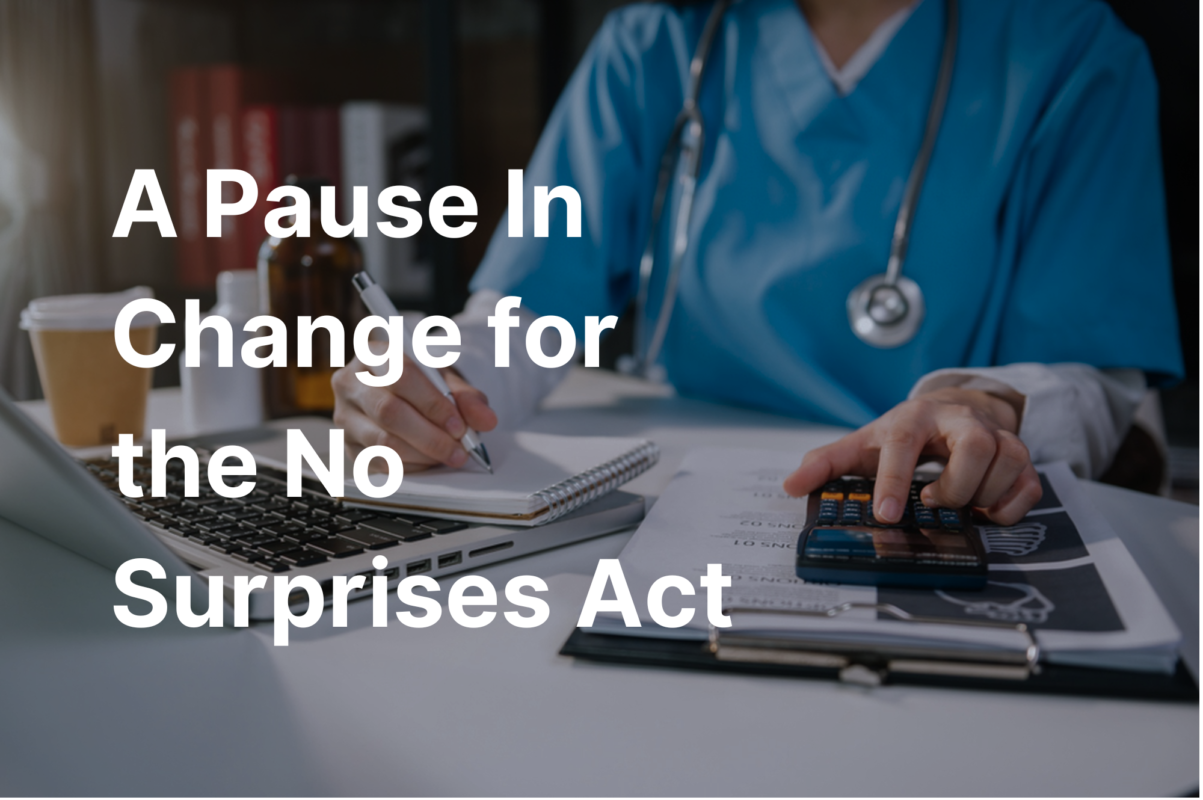The No Surprises Act (NSA) has undergone sweeping legal changes over the last month. Since its bold inception, healthcare administrators have been working at the speed of light to navigate administrative challenges while taking advantage of every opportunity to save on overly burdensome costs. The legal team at Rivet Health Law, PLC stands lockstep by your side explaining how a recent ruling in Texas will shape the way your practice manages Independent Dispute Resolution (IDR) as the process evolves, now and in the future.
Courts Push Back Against IDR Fees
The No Surprises Act (NSA) Independent Dispute Resolution (IDR) administrative fee has been rolled back to the original $50 per party dispute for disputes initiated on or after August 3, 2023. The U.S. District Court for the Eastern District of Texas issued an opinion on August 3, 2023, vacating the $350 administrative fee per party due to violations against the rulemaking requirement and should be paused until finalized.
The fee was set initially at $50, and Departments increased it by 600% to $350 on December 23, 2022. This rollback prompted another case (Texas Medical Association v. United States Department of Health and Human Services, Case No. 6:23-cv-59-JDK (TMA IV)), challenging the increase. The court found in favor of TMA and subsequently vacated the fee increase.
The Federal Government Pauses the IDR Process
As a result of this ruling, all IDR processes were stopped on August 8, 2023. The Departments issued guidance that rolls back the per-party dispute to $50. The Departments intend to reopen the portal to allow for submissions of new disputes. No refunds will be issued for any paid dispute fees before August 3, 2023.
The Department of Health and Human Services (HHS) issued a notice on its website on August 11, 2023, that states:
“As of August 11, 2023, the Departments have directed certified IDR entities to resume processing all single and bundled disputes initiated on or before August 3, 2023. Additionally, on August 8, 2023, certified IDR entities resumed processing batched disputes where the certified IDR entity determined that the batched dispute was eligible and administrative fees have been paid (or the deadline for collecting fees expired) before August 3, 2023. Processing of other batched disputes and dispute initiation remain temporarily suspended. Disputing parties should continue to engage in open negotiation.”
Our legal team is tracking and following this issue. Stay posted by keeping up with our blog for new developments. However, busy physicians should always seek legal advice from their attorneys if they have questions or concerns, as IDR fees and disputes remain in limbo.
A Justification to Vacate Unjust Fees
U.S. District Court Judge Jeremy Kernodlbe handed down the ruling due to an inadequate justification of the fee increases. Increased fees could harm both consumers and providers by creating an undue burden. Changing winds bring an unexpected pause to the IDR process, signaling a shift in response to how the Federal government should bill for these fees and handle matters.
The rollback is a massive win for physicians and patients alike by alleviating the financial strain associated with increased NSA IDR fees. However, HHS may see this determination as a setback since the Department believed the fees were justified. The Department will have a chance to defend its initial decision in court if they choose to challenge the new ruling.
Navigating Future IDR Process Laws
Healthcare administrators may find themselves scrambling to address issues related to the rollback of IDR fees. From rate negotiations to forward-thinking improvements, the changing landscape of healthcare will continue to move rapidly over the long term.
According to Becker’s Hospital Review, digital health investments are projected to hit $25 billion in 2023 alone, a near and astonishing $8 billion increase over 2022. It is that time for providers to up their efforts related to business intelligence, electronic health records (EHRs), and payment tracking to stay ahead of changing winds as they often do in our legal landscape.
These same technologies can be used to identify and make decisions about patients with higher healthcare costs. If Texas successfully gets IDR fees cut permanently, hospitals will have additional revenue to make these or other critical investments. While these changes could significantly impact your hospital, monitoring new developments and taking strategic action can help you weather short- and long-term challenges.
Stay NSA Aware with Rivet Health Law, PLC
Undeniably, the No Surprises Act (NSA) is complex, dynamic, and ever-evolving. Healthcare providers should review all ruling changes with an attorney to confirm compliance with current regulations. We can also help you determine if you are missing out on any cost-saving opportunities that support your facility’s vision for quality healthcare access.
Rivent Health Law, PLC works with medical providers seeking reimbursement for services provided to patients or handling IDR process disputes. Let our legal team know if you need to schedule a meeting about fee rollbacks, portal pauses, and other legal issues.

